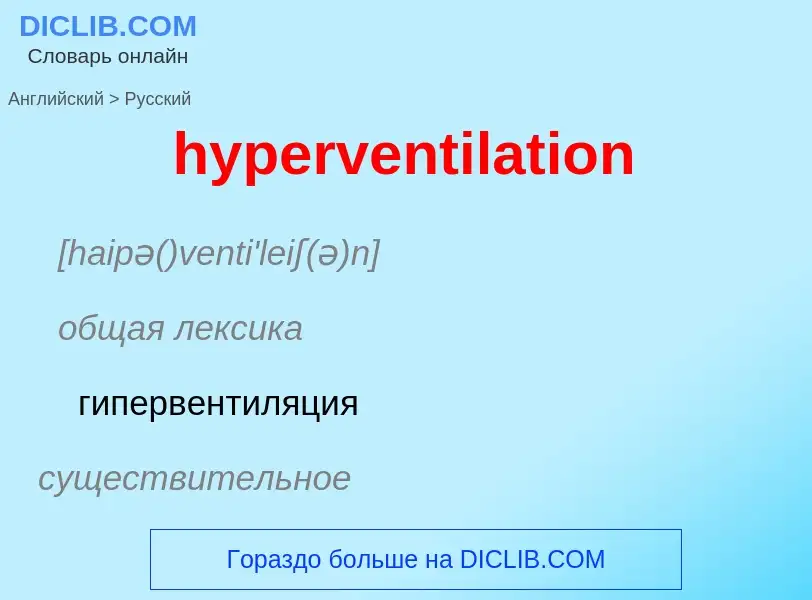Перевод и анализ слов искусственным интеллектом ChatGPT
На этой странице Вы можете получить подробный анализ слова или словосочетания, произведенный с помощью лучшей на сегодняшний день технологии искусственного интеллекта:
- как употребляется слово
- частота употребления
- используется оно чаще в устной или письменной речи
- варианты перевода слова
- примеры употребления (несколько фраз с переводом)
- этимология
hyperventilation - перевод на русский
[haipə()venti'leiʃ(ə)n]
общая лексика
гипервентиляция
существительное
медицина
гипервентиляция
перенасыщение лёгких кислородом
медицина
гипервентиляционный синдром
общая лексика
гипервентиляция
Википедия
Hyperventilation is irregular breathing that occurs when the rate or tidal volume of breathing eliminates more carbon dioxide than the body can produce. This leads to hypocapnia, a reduced concentration of carbon dioxide dissolved in the blood. The body normally attempts to compensate for this homeostatically, but if this fails or is overridden, the blood pH will rise, leading to respiratory alkalosis. The symptoms of respiratory alkalosis include dizziness, tingling in the lips, hands, or feet, headache, weakness, fainting, and seizures. In extreme cases, it may cause carpopedal spasms, a flapping and contraction of the hands and feet.
Factors that may induce or sustain hyperventilation include: physiological stress, anxiety or panic disorder, high altitude, head injury, stroke, respiratory disorders such as asthma, pneumonia, or hyperventilation syndrome, cardiovascular problems such as pulmonary embolisms, anemia, an incorrectly calibrated medical respirator, and adverse reactions to certain drugs. Hyperventilation can also be induced intentionally to achieve an altered state of consciousness such as in the choking game, during breathwork, or in an attempt to extend a breath-hold dive.

